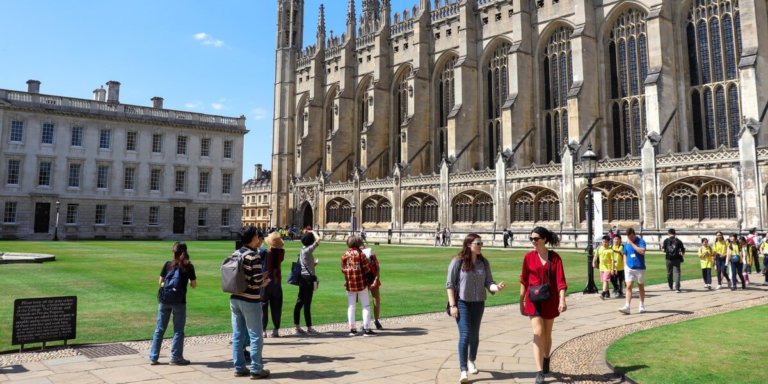
It was recently reported that 50 percent of young adults are attending UK universities, a record high for the country that has finally fulfilled Tony Blair’s target set in 1999.
According to iNews, “new statistics showed that 50.2 per cent of 17 to 30 year olds participated in higher education in 2017-18, up from 49.9 per cent the previous year.”
This sounds like good news, but as the statistics emerged, Education Secretary Gavin Williamson called out certain UK universities in a letter to Universities UK for lacking diversity and failing to attract more students from disadvantaged backgrounds.
Despite higher participation rates, he has accused many universities of “virtue signalling”, meaning they are making misleading claims about being inclusive and diverse when they actually aren’t.
He wrote, “It is not good enough that white working class boys are far less likely to go to university and black students are far less likely to complete their courses than others. We cannot let this wasted potential go unchecked any longer.
“I want all universities, including the most selective, to do everything they can to help disadvantaged students access a world-class education, but they also need to keep them there and limit the numbers dropping out of courses. My message is clear – up your game and get on with it.”
Education Secretary @GavinWilliamson is asking universities to do more for disadvantaged students & to do everything they can to ensure students complete their courses and reduce dropout rates 🎓
👉https://t.co/1i2AnsOaH7 pic.twitter.com/yl6R2DmBm9— DfE (@educationgovuk) September 26, 2019
During a visit to King’s College, he said that things are moving in the right direction but are doing so far too slowly.
He cited King’s College as an example of a university that has made positive changes to become “one of the most diverse universities anywhere in the country”.
According to iNews, “He highlighted the university’s policy of offering “differential rates in terms of grades”, so that students from poorer backgrounds with “obvious potential” can win a place with lower grades than their better-off peers.”
William said that while £1 billion is spent by universities on widening access, many are not providing evidence to show proof of the impact of these funds.
“There’s a lot of virtue signalling going on, but I’m not seeing enough results. I’m not going to be timid in terms of naming and shaming universities that continuously lag behind.”
Williamson spoke about a young man who joined King’s College as a medical student even though his grades were not on par with the rest of his peers. However, he emerged as the top student in the whole medical school this year.
Love the diversity and the energy! King’s College London Welcome Fair. I don’t remember 450 societies in my day! Love it! @kclsu @KingsCollegeLon pic.twitter.com/FEhTRXM4s8
— Sarah cowley (@sarahcowley01) September 21, 2018
Professor Julia Buckingham, President of Universities UK and Vice-Chancellor of Brunel University, agreed that more should be done to help disadvantaged students access a world-class education and that universities should support all students.
She said, “Progress is being made, with 18-year-olds from the most disadvantaged areas in England more likely to go to university than ever before,” but she acknowledged there is more work to do.
Universities UK has made recommendations on how universities can address attainment gaps for black, Asian and minority ethnic students.
However, she said the government should bring back ““maintenance grants for students most in need, helping reduce drop-out rates and financial barriers to university.”
Liked this? Then you’ll love…
How UK universities are preparing for Brexit
UCAS figures reveal that more international students are entering UK universities







